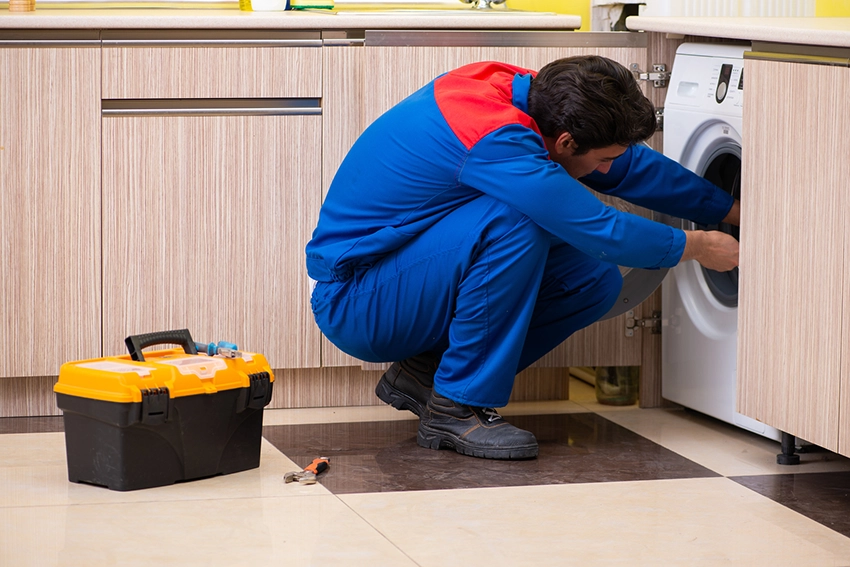In a groundbreaking move, the United Kingdom is set to implement regulations requiring manufacturers to provide spare parts for household appliances for up to a decade. This initiative, echoing similar rules in the European Union, aims to extend the lifespan of appliances, reduce environmental impact, and empower consumers. However, as we delve into the details, questions arise about the comprehensiveness of these regulations and their potential impact on global manufacturing standards. Let’s explore the nuances of this significant development.
The Evolution of Repair Rights
The new regulations, slated to take effect in April 2021, mandate manufacturers to supply spare parts such as door gaskets and thermostats for appliances like washing machines, dishwashers, refrigerators, TVs, and lighting fixtures. This move aligns with the broader “right to repair” movement, emphasizing three fundamental steps: changes to design for repair, provision of affordable spare parts, and access to official repair manuals.
The “right to repair” movement, gaining momentum globally, advocates for consumers’ ability to fix their devices rather than discarding them. It challenges the conventional notion that certain products are disposable once they malfunction, urging manufacturers to prioritize repairability in their designs. The rationale is simple extending the lifespan of products reduces the overall environmental impact, as fewer items end up in landfills.
Critiques and Limitations
While hailed as a positive stride, critics argue that the regulations don’t go far enough. Gay Gordon-Byrne, Executive Director of the US-based Repair Association, points out that the rules only impact a small group of products, limiting repair functionality to professionals. The lack of direct consumer access to service materials raises concerns about fairness and affordability.
Gordon-Byrne emphasizes that the right to repair encompasses more than just the availability of spare parts. It includes empowering consumers with the knowledge and tools needed to undertake repairs themselves, reducing dependence on professional services. As it stands, the regulations appear to favor a limited group of repair professionals, potentially excluding a significant portion of consumers who may possess the capability and willingness to fix their appliances.
Optimism for the Future
Despite reservations, some remain optimistic. Libby Peake, head of resource policy at the Green Alliance think tank, sees this as the initial step towards a comprehensive right to repair. The U.K.’s Environment Audit Committee’s call for legislation supporting people’s right to repair, even without professional expertise, suggests a potential shift towards a more consumer-friendly approach.
Peake notes that the U.K.’s Environment Audit Committee recently advocated for broader legislation granting comprehensive repair rights to individuals, irrespective of their professional background. While the government’s response might not have been as warm as expected, the mere acknowledgment of the need for a more inclusive right to repair signals a potential evolution in consumer rights.
Environmental Impact Assessment
Addressing environmental concerns, Gordon-Byrne argues that the impact on electronic waste may be minimal due to the low electronics-to-weight ratio in major appliances. While applauding improved deconstruction at recycling points, she emphasizes the need for a more holistic approach to environmental sustainability.
The environmental impact of discarded appliances has long been a concern. The electronic waste generated from obsolete or malfunctioning devices contributes significantly to environmental degradation. However, Gordon-Byrne suggests that the impact of the new regulations might be less pronounced than anticipated, especially considering the highly recyclable nature of the metal and plastic components in major appliances.
Energy Efficiency Standards
Beyond repair mandates, the regulations introduce new standards for measuring energy efficiency. The shift from A+, A++, and A+++ rankings to an A to G scale aims to tighten energy efficiency assessments, potentially saving billions on energy bills and reducing electricity consumption.
Energy efficiency has become a focal point in global discussions on sustainability. The existing A+, A++, and A+++ rankings on U.K. appliances have been criticized for their generosity, with many products earning top grades despite questionable efficiency. The introduction of a more stringent A to G scale is a positive step towards ensuring that consumers receive accurate information about the energy efficiency of their appliances.
Global Perspectives on Right to Repair
The United States takes a different approach, seeking state legislation to mandate manufacturers to make service materials widely available. This alternative strategy, supported by 25 states considering Right to Repair legislation, emphasizes empowering independent businesses and consumers to participate in repairing their belongings.
The Right to Repair movement is not confined to the shores of the United Kingdom. In the United States, a different approach is being taken to address the repairability of products. Instead of mandating changes in designs, as seen in the U.K., the focus is on ensuring that manufacturers make their service materials accessible to independent businesses and consumers on fair and reasonable terms.
Conclusion:
As the United Kingdom prepares to enforce its ten-year appliance repair mandate, the world watches with anticipation. While hailed as a positive step towards sustainability, critiques highlight the need for more comprehensive measures. The evolution of global manufacturing standards and the ongoing Right to Repair movements in different parts of the world underscore the importance of addressing not only the lifespan of products but also the rights of consumers.
In an era of environmental consciousness, every small step forward, including the EU regulations, might inspire more significant changes globally. As we navigate these changes, it becomes crucial to strike a balance between encouraging repairability, protecting consumer rights, and fostering sustainable practices in the manufacturing industry. The journey towards a more environmentally conscious and consumer-friendly future continues, propelled by incremental yet significant steps.

